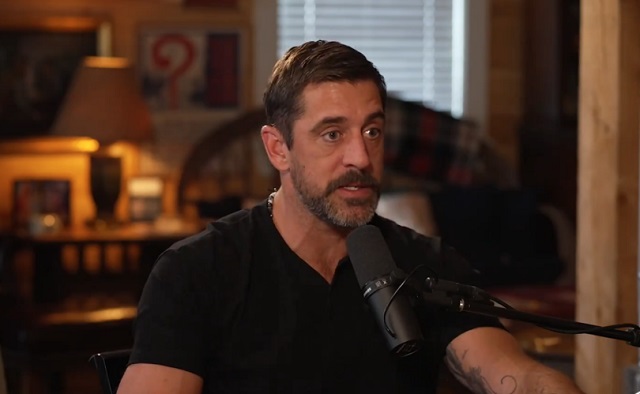Health
NYC orders mandatory vaccines for some amid measles outbreak
New York City declared a public health emergency Tuesday over a measles outbreak
Mayor Bill de Blasio announced the unusual order amid what he said was a measles crisis in Brooklyn’s Williamsburg section, where more than 250 people have gotten measles since September. Officials blamed the outbreak on “anti-vaxxers” spreading false information.
The order applies to anyone living, working or going to school in four ZIP codes in the
The city can’t legally physically force someone to get a vaccination, but officials said people who ignore the order could be fined $1,000. The city said it would help everyone covered by the order get the vaccine if they can’t get it quickly through their regular medical provider.
“If people will simply
Officials say 285 measles cases have been confirmed in New York City since the beginning of the outbreak, the largest in the city since 1991.
New York City accounted for about two-thirds of all U.S. measles cases reported last week.
The city’s health commissioner, Dr. Oxiris Barbot, said that the majority of religious leaders in Brooklyn’s large Orthodox communities support vaccination efforts, but that rates have remained low in some areas because of resistance from some groups that believe the inoculations are dangerous.
“This outbreak is being fueled by a small group of anti-vaxxers in these
The commissioner is empowered by law to issue such orders in cases when they might be necessary to protect against a serious public health threat.
Earlier this week, the city ordered religious schools and day care programs serving that community to exclude unvaccinated students or risk being closed down.
Another Jewish religious community, north of the city but with close ties to Brooklyn, has also seen a surge, with at least 166 cases since October. Last week, a state judge blocked an attempt by Rockland County officials to halt the spread of measles by banning unvaccinated children from public places.
The Centers for Disease Control and Prevention recommends that all children get two doses of measles vaccine. It says the vaccine is 97% effective.
The Associated Press
Brownstone Institute
WHO Accords Warrant Sovereignty Concern
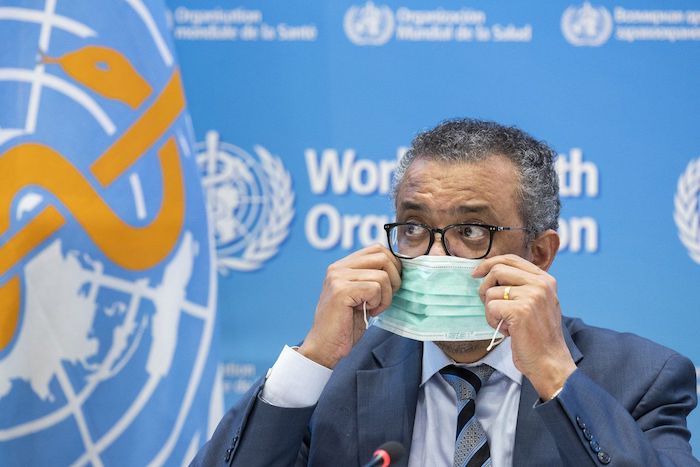
From the Brownstone Institute
BY
In agreeing to undertake to implement the WHO advisories, states will be creating a new system of pandemic management under the WHO authority and binding under international law. It will create an open-ended international law obligation to cooperate with the WHO and to fund it.
On 11 March, my article criticizing what appeared to be a slow-motion coup d’état by the World Health Organization (WHO) to seize health powers from states in the name of preparing for, conducting early warning surveillance of, and responding to “public health emergencies of international [and regional] concern” was published in the Australian. The coup was in the form of a new pandemic treaty and an extensive package of more than 300 amendments to the existing International Health Regulations (IHR) that was signed in 2005 and came into force in 2007, together referred to as the WHO pandemic accords.
The two sets of changes to the architecture of global health governance, I argued, will effectively change the WHO from a technical advisory organisation offering recommendations into a supranational public health authority telling governments what to do.
On 3 May, the Australian published a reply by Dr. Ashley Bloomfield, co-chair of the WHO working group on the IHR amendments. Bloomfield was New Zealand’s Director-General of Health from 2018–22 and received a knighthood for his services in the 2024 New Year’s Honours list. His engagement with the public debate is very welcome.
Rejecting the charge that the WHO is engaged in a power grab over states, Bloomfield wrote that as a one-time senior UN official, I “would know that no single member state is going to concede sovereignty, let alone the entire 194 members.”
I bow to the good doctor’s superior medical knowledge in comparison to my non-existent medical qualifications.
Unfortunately, I cannot say the same with respect to reforms across the UN system, or sovereignty, or the relationship between “We the peoples” (the first three words of the UN Charter), on the one hand, and UN entities as agents in the service of the peoples, on the other. On medical and not health policy issues, I would quickly find myself out of my depth. I respectfully submit that on sovereignty concerns, Dr. Ashley may be the one out of his depth.
On the first point, I was seconded to the UN Secretariat as the senior adviser to Kofi Annan on UN reforms and wrote his second reform report that covered the entire UN system: Strengthening the United Nations: An Agenda for Further Change (2002). The topic of UN reforms, both the case for it and the institutional and political obstacles frustrating the achievement of the most critical reforms, forms a core chapter of my book The United Nations, Peace and Security (Cambridge University Press, 2006, with a substantially revised second edition published in 2017).
I was also involved in a small Canada-based group that advocated successfully for the elevation of the G20 finance ministers’ group into a leaders’ level group that could serve as an informal grouping for brokering agreements on global challenges, including pandemics, nuclear threats, terrorism, and financial crises. I co-wrote the book The Group of Twenty (G20) (Routledge, 2012) with Andrew F. Cooper, a colleague in that project.
On the second point, I played a central role in the UN’s reconceptualisation of sovereignty as state responsibility and citizens as rights holders. This was unanimously endorsed by world leaders at the UN summit in 2005.
On the third point, in Utopia Lost: The United Nations and World Order (1995), Rosemary Righter (the former chief leader writer at the Times of London) quoted Alexander Solzhenitsyn’s description of the United Nations as “a place where the peoples of the world were delivered up to the designs of governments” (p. 85).
So yes, I do indeed know something about UN system reforms and the importance of sovereignty concerns in relation to powers given to UN bodies to prescribe what states may and may not do.
In agreeing to undertake to implement the WHO advisories, states will be creating a new system of pandemic management under the WHO authority and binding under international law. It will create an open-ended international law obligation to cooperate with the WHO and to fund it. This is the same WHO that has a track record of incompetence, poor decision-making, and politicised conduct. The insistence that sovereignty is not being surrendered is formulaic and legalistic, not substantive and meaningful in practice.
It relies on a familiar technique of gaslighting that permits plausible deniability on both sides. The WHO will say it only issued advisories. States will say they are only implementing WHO recommendations as otherwise, they will become rogue international outlaws. The resulting structure of decision-making effectively confers powers without responsibility on the WHO while shredding accountability of governments to their electorates. The losers are the peoples of the world.
A “Litany of Lies” and Misconceptions? Not So Fast.
Bloomfield’s engagement with the public debate on the WHO-centric architecture of global health governance is very welcome. I have lauded the WHO’s past impressive achievements in earlier writings, for example in the co-written book Global Governance and the UN: An Unfinished Journey (Indiana University Press, 2010). I also agree wholeheartedly that it continues to do a lot of good work, 24/7. In early 2020 I fought with a US editor to reject a reference to the possible virus escape from the Wuhan lab because of WHO’s emphatic statements to the contrary. I later apologised to him for my naivete.
Once betrayed, twice shy of the message: “Trust us. We are from the WHO, here to keep you safe.”
Sir Ashley was merely echoing the WHO chief. Addressing the World Governments Summit in Dubai on 12 February, Director-General (DG) Tedros Adhanom Ghebreyesus attacked “the litany of lies and conspiracy theories” about the agreement that “are utterly, completely, categorically false. The pandemic agreement will not give WHO any power over any state or any individual.”
DG Tedros and Sir Ashley do protest too much. If Australia chooses as a sovereign nation to sign them, that does not mean there is no loss of effective sovereignty (that is, the power to make its health decisions) from that point on.
This is why all 49 Republican senators have “strongly” urged President Joe Biden to reject the proposed changes. The expansion of “WHO’s authority over member states during” pandemic emergencies, they warn, would “constitute intolerable infringements upon US sovereignty.” In addition, 22 Attorneys-General have informed Biden that the WHO writ under the new accords will not run in their states.
On 8 May, the UK said it would not sign the new treaty unless clauses requiring transfer of pandemic products were deleted. Under Article 12.6.b of the then-draft, the WHO could sign “legally binding” contracts with manufacturers to get pandemic-related “diagnostics, therapeutics or vaccines.” Ten percent of this is to be free of charge and another ten percent at profit-free prices. In the latest, 22 April draft, this last requirement comes in Article 12.3.b.i in slightly softer language.
The UK wants to retain the right to use British-made products first to address domestic requirements as judged by the government, and only then to make them available for global distribution. The draft, the government fears, will undermine British sovereignty.
On 14 May, five senators and nine representatives from the Australian parliament wrote a formal letter to PM Anthony Albanese expressing deep concern over the likely prospect of Australia signing the accords that “will transform the WHO from an advisory organisation to a supranational health authority dictating how governments must respond to emergencies which the WHO itself declares.” If adopted and implemented into Australian law, they wrote, these would give the WHO “an unacceptable level of authority, power and influence over Australia’s affairs under the guise of declaring ‘emergencies’.”
“Legally Binding” vs “Loss of Sovereignty” is a Distinction without a Difference
They can’t all be part of a global conspiracy to peddle a litany of lies. The WHO is offering up a highly specious argument. Sir Ashley didn’t really engage with the substance of my arguments either. He dismissed criticism of the proposed changes as “an attempt by the WHO to gain the power to dictate to countries what they must do in the event of a pandemic” as a “misconception.”
The G20 Leaders’ Bali Declaration (November 2022, paragraph 19) supported the goal of a “legally binding instrument that should contain both legally binding and non-legally binding elements to strengthen pandemic planning, preparedness and response (PPR) and amendments to the IHR.” In September 2023, the G20 Delhi Leaders’ Declaration (28:vi) envisioned “an ambitious, legally binding WHO” accord “as well as amendments to better implement” the IHR.
Lawrence Gostin, actively involved in the negotiations, was co-author of a report last December that said containing transnational outbreaks under WHO leadership “may require all states to forgo some level of sovereignty.” A joint Reuters-World Economic Forum article on 26 May 2023 stated: “For the new more wide-reaching pandemic accord, member states have agreed that it should be legally binding.”
The WHO itself describes the IHR as “an instrument of international law that is legally-binding on 196 countries.” Last year it published a document that includes section 4.6 on “legally binding international instruments” such as a new pandemic accord.
I get the argument that sovereign states are voluntarily agreeing to this. In terms of legal technicality, it might well be more accurate, as Libby Klein suggests in her draft letter to Australian MPs, to use words and phrases like “ceding autonomy,” “yielding “effective control over public health decisions,” “outsourcing public health decision-making to the WHO,” or “offshoring our public health decision-making.” This is the legalistic distinction that Bloomfield is effectively making.
However, simply because states must voluntarily sign the new WHO accords doesn’t mean they will not be ceding sovereignty once the accords are adopted. With all due respect to Dr. Tedros and Sir Ashley, this is a distinction without a difference. Every single “legally binding” requirement will mean a transfer of effective decision-making power on health issues to the WHO. That is a curtailment of state sovereignty and it is disingenuous to deny it.
Since the creation of the United Nations in 1945, states have been required to conduct themselves increasingly in conformity with international standards. And it is the UN system that sets most of the relevant international standards and benchmarks of state behaviour.
For example, for centuries countries had the absolute right to wage wars of aggression and defence as an acknowledged and accepted attribute of sovereignty. By adopting the United Nations Charter in 1945, they gave up the right to wage aggressive wars. I am very glad they did so. Just because the surrender of this aspect of sovereignty was voluntary, it doesn’t mean there was no surrender of sovereignty.
Similarly, by signing the Nuclear Non-proliferation Treaty (NPT), Australia and around 185 states surrendered their sovereign right to make or get the nuclear bomb. Again, I am very glad they did so.
Article 10 of the treaty does permit withdrawal after a three-month notice to other states parties and the UN Security Council:
Each Party shall in exercising its national sovereignty have the right to withdraw from the Treatyif it decides that extraordinary events…have jeopardisedthe supreme interests of its country.
Australia could still act as a sovereign state and pull out of the NPT but, absent exculpatory events, only at the reputational cost of acting illegally under international law.
North Korea first announced withdrawal from the NPT in 1993, suspended the withdrawal, withdrew in 2003, has conducted six nuclear tests since 2006, and acquired up to 50 bombs. Yet, the UN has refused to accept the withdrawal and it is still listed on the UN website as an NPT member, with the explanatory note that: “States parties to the Treaty continue to express divergent views regarding the status of the DPRK under the NPT.”
Like these two important examples, states will lose key parts of the right to exercise their sovereignty over national policy settings and decisions on health if the WHO accords are adopted. It is their sovereign right to reject the treaties now. They should exercise it before it is too late. The complications entangling the post-Brexit referendum in the UK demonstrate only too vividly how challenging it can be for a state to extricate itself from a supranational authority despite the sovereign right to do so.
The best way to allay these fears and concerns would be to return responsibility to where accountability lies: with the national government and parliament. States should learn to cooperate better in global pandemic management, not hand effective decision-making powers and authority to unelected and unaccountable international technocrats.
The Effort Should Be Put on Indefinite Hold
It is an iron law of politics that any power that can be abused, will be abused by someone, somewhere, some time in the future. For current examples of overreach by a technocrat, look no further than Australia’s eSafety Commissioner. The truly frightening thing about her example is the realisation of just how much her efforts have been deliberately embedded in a global campaign to “bureaucratise” and control the internet.
A softer conclusion is that powers once granted over citizens to authorities are far more difficult to claw back than not giving them the powers in the first place. Thus far from retreating, the Censorship-Industrial Complex is simultaneously being broadened to embrace additional sectors of governance and public policy and globalised.
A report from Leeds University documented that pandemics are rare events. They are not becoming more frequent. For poor countries, their global disease burden is much lower than that of the big killer diseases like TB, malaria, and HIV/AIDS. For industrialised countries like Australia, the disease burden has been greatly reduced since the Spanish flu with improved surveillance, response mechanism, and other public health interventions.
There is no emergency justifying the rushed process. An immediate pause and a slow and deliberative process would lead to better policy development and deliver better national and global health policy outcomes.
“Pause for thought, argue for a wider delay, think it through properly. And don’t sign till it’s right.” David Frost, who led the UK Brexit negotiations.
Just so.
Brownstone Institute
Enough With These Dangerous Calculations
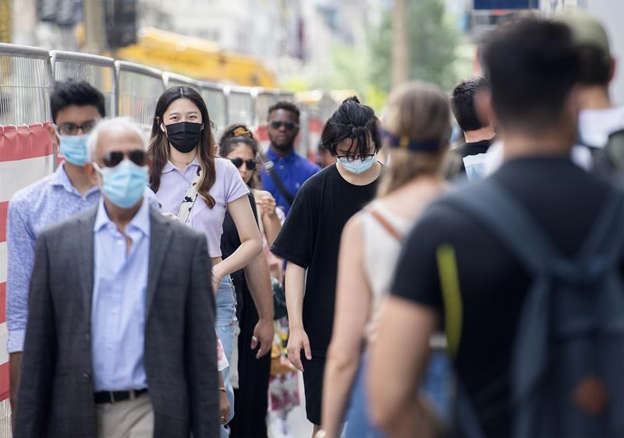
From the Brownstone Institute
BY
Now that there is more open talk about vaccine injury, we are continually assured that overall these vaccines were worth it even so. The thought always occurs: it has not been worth it for the injured. Nor is their injury lessened by the knowledge that others were helped, if they were.
What precise metric are we going to use to determine costs and benefits population-wide? Many millions were forced to take experimental injections that they did not want nor need. Many were injured and with no chance of compensation. This is gravely unjust. You don’t need to take recourse to fancy philosophical conjectures (The Trolley Problem, The Lifeboat Dilemma, The Fat Man on the Bridge, etc.) to do the utilitarian calculation.
And yet, such calculations are precisely what the defenders of society-wide pandemic interventions are citing as evidence that we can and should do it again. The costs are high, they now admit, but worth the benefit.
Well, maybe not. It’s hard to say but they will keep working on it. They will decide in due course.
This is the argument of Professor John M. Barry. His book on the 1918 flu pandemic kicked off the entire pandemic-planning industry once George W. Bush read the book flap in 2005. Barry’s new article in the New York Times raises alarms about the Avian Bird Flu, the same as the whole pandemic industry is doing right now, and makes the argument that the interventions last time were just great overall.
“Australia, Germany and Switzerland are among the countries that demonstrated those interventions can succeed,” he claims even though all three countries have been torn apart by the pandemic response that is still rocking politics and showing itself in economic decline “Even the experience of the United States provides overwhelming, if indirect, evidence of the success of those public health measures.”
What is that indirect evidence? This you won’t believe: that flu deaths dramatically fell. “The public health steps taken to slow Covid contributed significantly to this decline, and those same measures no doubt affected Covid as well.”
That’s a heck of a thing. If you burn down the house to kill the rats and fail, but happen to kill the pets, surely you have some bragging rights there.
There is indeed a big debate on why seasonal flu seems to have nearly disappeared during the pandemic. One theory is simple misclassification, that flu was just as present as always but labeled Covid because PCR tests pick up even slight elements of the pathogen and financial incentives drove one to displace the other. There is surely an element of this.
Another theory relates to crowding out: the more serious virus pushes aside the less serious one, which is an empirically testable hypothesis.
A third explanation might in fact be related to interventions. With vast numbers staying home and the banning of gatherings, there was indeed less opportunity for pathogenic spread. Even if granting that is true, the effect is far from perfect, as we know from the failure of every attempt to achieve zero Covid. Antarctica is a good example of that.
That said, and even postulating this might be correct, there is nothing to prevent the spread among the population after opening except with even worse results because immune systems are degraded for lack of exposure.
Barry concedes the point but says “such interventions can achieve two important goals.” The first is “preventing hospitals from being overrun. Achieving this outcome could require a cycle of imposing, lifting and reimposing public health measures to slow the spread of the virus. But the public should accept that because the goal is understandable, narrow and well defined.”
Fine, but there is a major glaring error. Most hospitals in the US were not overrun. There is even a genuine question about whether and to what extent New York City hospitals were overrun but, even if they were, this had nothing to do with hospitals in most of the country. And yet the grand central plan closed them all for diagnostics and elective surgeries. In major parts of the country, parking lots were completely empty and nurses were furloughed in more than 300 hospitals.
Overall, that scheme (and who imposed this?) didn’t work too well.
The second supposed benefit you can predict: shutting down buys time “for identifying, manufacturing and distributing therapeutics and vaccines and for clinicians to learn how to manage care with the resources at hand.” This is another strange statement because authorities actually removed therapeutics from the shelves all over the country even though physicians were prescribing them.
As for the supposed vaccine, it did not stop infection or transmission.
So that scheme didn’t work either. There is also something truly cruel about using compulsory methods to preserve the population’s immunological naïveté in anticipation of a vaccine that may or may not work and may or may not cause more harm than good. And yet that is precisely the plan.
The most alarming part of Barry’s article, even aside from his incorrect claim that masks work, is this statement: “So the question isn’t whether those measures work. They do. It’s whether their benefits outweigh their social and economic costs. This will be a continuing calculation.”
Again we are back to benefit vs costs. It’s one thing for a person confronting a true moral or personal difficulty to make that calculation and live with the consequences. Every philosophical problem listed above – Trolly Cars and Lifeboats – involves personal choices and single decision-makers. In the case of pandemic planning and response, we are talking about groups of intellectuals and bureaucrats making decisions for the whole of society. In the last go-round, they made these decisions for the entire world with catastrophic results.
Many hundreds of years ago and following, the Western mind decided that giving such power to elites was not a good idea. The “continuing calculation” about what costs and benefits are experienced by billions of people from compulsory impositions is not something we should risk, not even with AI (which Barry says will solve the problems next time). Instead, we generally decided that a presumption of freedom is a better idea than empowering a small elite of scientists with the power to make “continuing calculations” for our supposed benefit.
Among many problems with the scientistic scheme for elite rule in the realm of infectious disease is that the population as a whole has no way to evaluate schemes and claims made to them by the government itself. They told us terrible population-wide death would come from Covid but it turned out to be exactly what others said back in February 2020; a disease impactful mainly on the aged and infirm.
Similarly, with the bird flu, we’ve been through a quarter century of claims that half of humanity could die from it. So far, every jump from animals to humans has resulted in reparable maladies like conjunctivitis.
But let’s say the bird flu really does get bad. Should the scientists who ruled us last time be trusted to do it again? That’s Barry’s plea: he demands “trust in government.” At the same time, he wants government to have the power to censor dissent. He falsely claims that last time, “there was no organized effort to counter social media disinformation” despite vast evidence of exactly this.
More information is actually what we need, especially from dissidents. For example, Barry celebrates that dexamethasone worked against Covid. But he fails to point out that the “experts” said in February 2020 that dexamethasone should not be used. Indeed, if you followed the Lancet, you would not have used them at all. In other words, Barry’s article refutes itself simply by showing the experts were desperately wrong in this case.
And, honestly, he knows this. Every bit of it. I have no doubt that if we met for cocktails, he would agree with most of this article. But he would also quickly point out that, after all, the New York Times commissioned the article so he can only say so much. He is merely being strategic, don’t you know?
This is the problem we face today with nearly all ruling-class intellectuals. We don’t actually disagree that much on the facts. We disagree on how much of the facts we are in a position to admit. And this puts Brownstone in a very awkward position of being a venue to say publicly what most people in the know say only privately. We do it because we believe in doing so.
All of which underscores the more general point: government and its connected scientists simply cannot be trusted with this kind of power. The last experience illustrates why. We forged our societies to have laws and guaranteed liberties that can never be taken away, not even during a pandemic. It is never worth using the power of the state to ruin lives to fulfill anyone’s abstract vision of what constitutes the greater good.
-
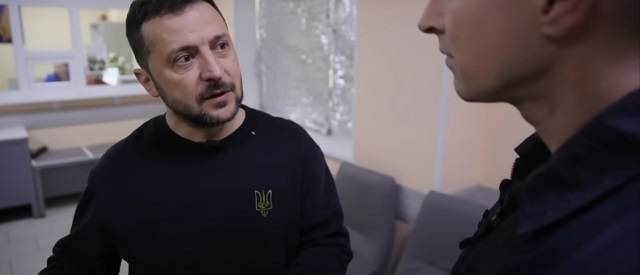
 conflict2 days ago
conflict2 days ago‘What’s The Problem?’: Zelenskyy Says NATO Needs To ‘Shoot Down’ Russian Missiles In Ukraine’s Airspace
-

 COVID-191 day ago
COVID-191 day agoSaskatchewan appeals court upholds COVID-era gov’t restrictions on outdoor gatherings
-

 Automotive21 hours ago
Automotive21 hours agoEV transition stalls despite government mandates and billion-dollar handouts
-
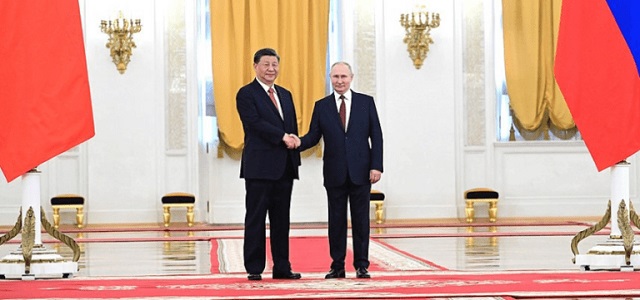
 Agriculture12 hours ago
Agriculture12 hours agoThe China – Russia “Grain Entente” – what is at stake for Canada and its allies?
-
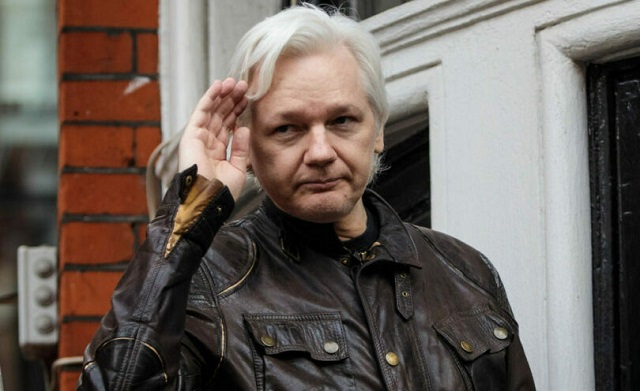
 International2 days ago
International2 days agoJulian Assange wins right to appeal extradition to US, remains in UK prison for now
-
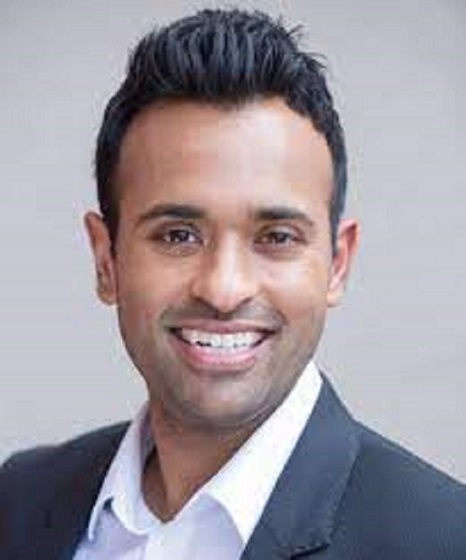
 International1 day ago
International1 day agoFormer GOP Republican Presidential Candidate Buys Activist Stake In Left-Wing Outlet
-
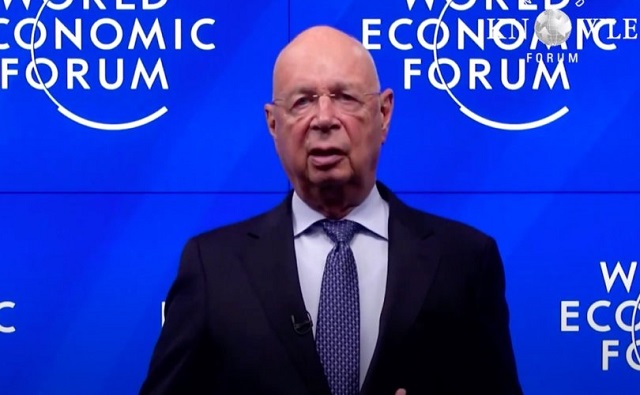
 Great Reset11 hours ago
Great Reset11 hours agoDr. Robert Malone reacts to Klaus Schwab’s resignation: ‘Resistance is not futile’
-
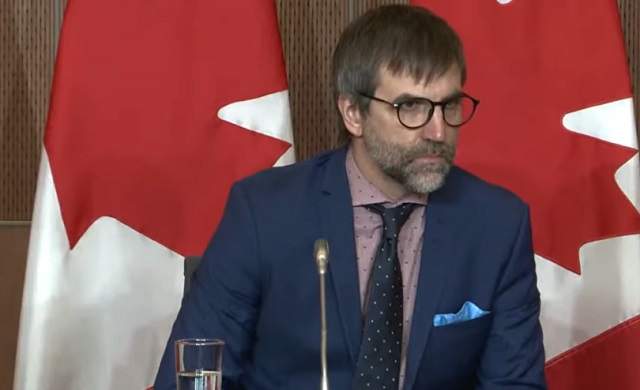
 Business10 hours ago
Business10 hours agoTrudeau’s environment department admits carbon tax has only reduced emissions by 1%








